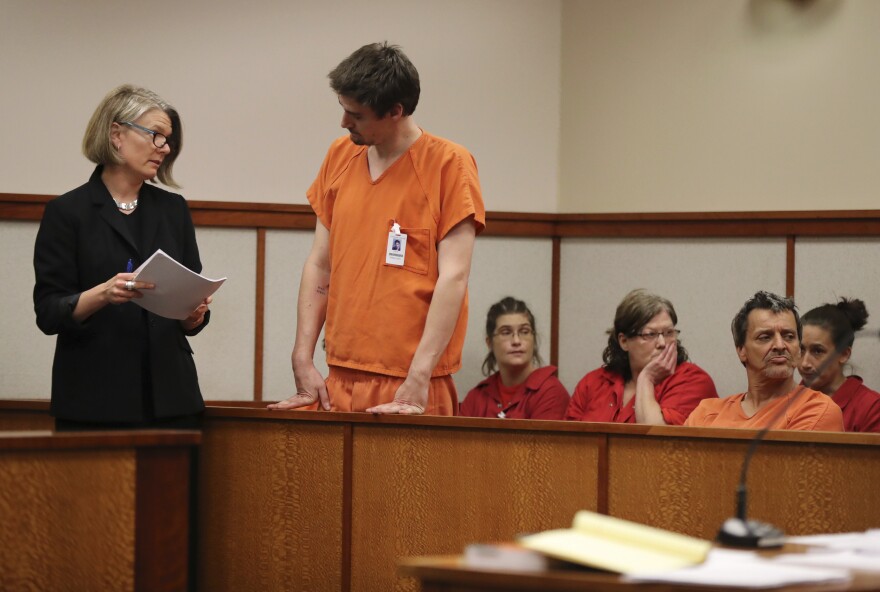A state advisory committee is collecting feedback on Maine's current court-appointed indigent defense system, with the goal of submitting recommendations to a federal civil rights agency.
Maine is the only state in the country that relies on private attorneys to defend low-income defendants.
The number of attorneys willing to take on indigent defense cases has plummeted from about 400 to roughly 160 over the last two years.
Wendy Allen, a program director at the Restorative Justice Institute of Maine who is finishing a six-year prison sentence on supervised community confinement, has her own experience with a court-appointed attorney. She said she felt pressured to take a plea deal that she wasn't comfortable with.
"Had I been able to pay for a lawyer or maybe a public defender where they are committed to working for their client, maybe things would have turned out a little bit different for me," she said.
But Allen said she wasn't surprised with the quality of her representation, once she learned how many cases Maine's court-appointed defense attorneys were carrying.
Court-appointed criminal defense attorneys are also responsible for finding and paying for their own staff, supplies and insurance.
Zachary Heiden, chief counsel of the ACLU of Maine, said that arrangement means that prosecutors have an unfair advantage.
"The prosecutors are paid for all their training," he said. "They're paid to have offices. They have support staff on site that's all paid for, computers, phones, research assistants. They have the police departments to do all their investigating, and it's up to the criminal defense lawyers to work all that out on their own."
The ACLU has a class action lawsuit pending in state superior court, claiming that Maine is failing its constitutional obligation to adequately represent low-income defendants.
Maine advisory committee hosted the first of several panel discussions Thursday on the topic. The committee plans to compile public feedback and submit recommendations to the U-S Commission on Civil Rights.
Two other panel discussions are scheduled for November and December.



